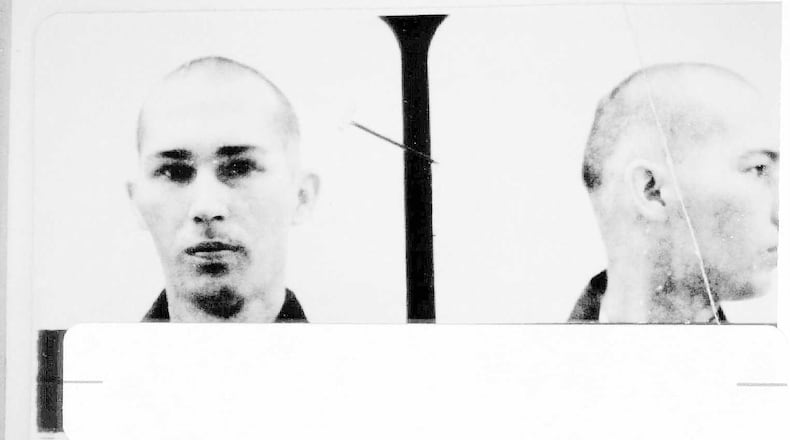(This story was originally published May 15, 1995)
Both the state Board of Pardons and Paroles and the state Supreme Court today turned down clemency appeals by Darrell Gene Devier, scheduled to die in the electric chair at 7 tonight for the slaying of a 12-year-old girl.
“If there’s ever been a case for capital punishment, it is this case,” said J. Wayne Garner, chairman of the parole board. “This board went through this exhaustively and extensively, and this is probably the worst crime I've ever seen placed upon a child.”
Devier, who spent seven hours with his mother and other family members on Mother’s Day, was scheduled to be executed for the 1979 kidnapping, rape and murder of Mary Frances Stoner of Adairsville. It would be the state's second execution in little more than a month.
Devier was visited Sunday by his mother, stepfather, brother, sister- in-law, nephew, aunt and uncle from 9 a.m. to 4 p.m. All have been approved to visit him again today.
Devier's attorney was on the approved list but did not visit during the weekend, said Karen Kirk, spokeswoman for the state Department of Corrections.
Credit: Provided photo
Credit: Provided photo
Devier’s execution would be the 20th in Georgia since 1983. It is scheduled to take place five weeks after British-born Nicholas Ingram was put to death at the Georgia Diagnostic and Classification Center near Jackson for murder, despite intense lobbying and pressure from many Britons and the British media.
Because of the impending execution, nearly 1,450 inmates at the Jackson prison — all of them recent, nonpermanent arrivals — were not allowed visitors on Mother’s Day weekend. The 250 permanent prisoners, as Devier is classified, retained their visitation schedules.
Warden A.G. Thomas said visits to the newer inmates routinely are curtailed before an execution because their visitation room is near the area where the condemned inmate would meet relatives. Thomas said he wanted to guarantee Devier’s privacy.
Last week, Devier was given an opportunity to make his own funeral arrangements, choose the menu for his last meal and name five people he wishes to include among the 15 witnesses to his execution.
He boxed up his belongings and was given state-issued items for his last hours, including a mattress and pillow, bed linens, a change of clothes and toiletry items. Under Department of Corrections rules, he also was allowed a television, radio, playing cards and reading material.
Like The Atlanta Journal-Constitution on Facebook | Follow us on Twitter
If there is no stay or commutation, Devier will be strapped into the wooden electric chair at 7 p.m. The death warrant will be read, and Devier will be allowed a last statement to the witnesses gathered on the other side of a glass window.
Behind Devier, on the other side of a one-way mirror, three volunteers, who have removed any jewelry or markings on their uniforms, will each press a button — only one of which works — to begin the first of three surges of electricity. In a little more than five minutes, Devier should be dead.
Keep Reading
The Latest
Featured




